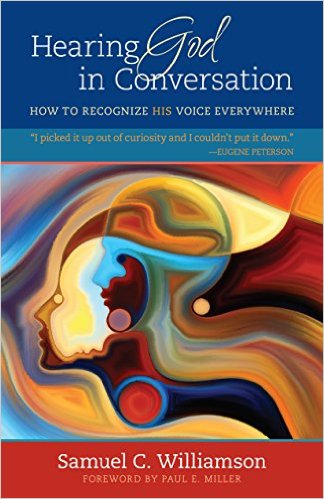|
Striving for
Spiritual Impact
.
by Sam Williamson
A few months ago, I mentioned that I had
been diagnosed with kidney cancer. The treatment
involved five uncomfortable procedures, but the
recovery was less painful than many suffer. A
friend teased me, “You had the best cancer in the
world. It was reasonably safe, you got an ‘I
am a cancer survivor’ pin, and your
convalescence hurt less than my tonsillectomy.”
But the diagnosis meant I needed to clear my fall
schedule. I canceled four retreat-speaking
engagements, a few preaching opportunities; and
even though the five recoveries were relatively
less severe, they still exhausted me, so during
those fifteen weeks I wrote only five “weekly”
articles.
For the last three months, I’ve experience more
free time than I’ve had since I learned to ride a
tricycle. But the free time came with restricted
emotional reserves. I simply didn’t have the
energy to write articles, read books, or even
watch Netflix. I felt like Marie Antoinette once
lamented, “Nothing tastes.”
And for those three long months, I wondered, “Of
what use am I? How can I make an impact?”
The Trouble with
Impact
The desire for significance is as deep-rooted as
our longing for family, friendships, and hearing
God. After all, it was paradise—when humanity
was perfect—that God said, “It is not good
for man to be alone.” It was in that same paradise
that God called Adam and Eve to artistically work
in his Garden: they took the raw materials of sun,
soil, and seed to create beauty.
Our problem surfaces when we try to produce that
significance on our own, and usually for our own
glory. The movie Chariots of Fire famously
contrasts the two approaches when Harold Abrams
moans, “I run because when that gun goes off, I
have ten seconds to justify my existence,” whereas
Eric Liddle declares, “When I run, I feel God’s
pleasure.”
The struggle we face begins with the question:
“What is the stress beneath our work?”
Running may be fun, but when we run (or parent,
preach, study, or lead) to gain a reputation, it
sours the very work we participate in. Harold
Abrams anxiously labored to create a name for
himself; and that is the hidden and despairing
work we do beneath our work. And it exhausts us.
The Great
Compliment of God
After the resurrection of Jesus, his disciples
ask, “Will you restore the kingdom now?” Jesus
says, “No. You will, after the Holy Spirit comes
upon you.”
This is an incredible affirmation of God to us. He
could have brought his kingdom by himself, but he
chose to invite us up into partnership with him,
to bring about his kingdom through us, in the
power of his Spirit. It is not our self-naming
strivings. C. S. Lewis once wrote,
You will never make a good impression
on other people until you stop thinking about
what sort of impression you are making. Even in
literature and art, no one who bothers about
originality will ever be original whereas if you
simply try to tell the truth in your own words
(without caring tuppence how often it has been
told before) you will, nine times out of ten,
become original without ever having noticed.
During my convalescence, I struggled to find some
activity of significance to do. And then I read
the story of the thief on the cross. He says to
Jesus, “Lord, remember me when you come into your
kingdom.” And Jesus responds, “Today you will be
with me in paradise.”
That thief on the cross impacted more people than
Billy Graham did in all his crusades combined. And
all that thief really did was to say, “You are
Lord, I am not, and I need you.”
It does me no good to say, “I can have impact, if
only I were healthy.” If I can’t let God work
through me where I am, I certainly can’t have God
work through me where I am not.
Sam
P. S. We think we are made for significance, but
our primary purpose in life is to have a
relationship with God.

Sam Williamson has published
numerous articles and has written two books.
He has a blog site, www.beliefsoftheheart.com,
and can be reached at
Sam@BeliefsoftheHeart.com.
Hearing
God in Conversation: How to Recognize
His Voice Everywhere, by Samuel C.
Williamson, published by Kregel
Publications, 2016, available from Amazon
top
photo of c
|

